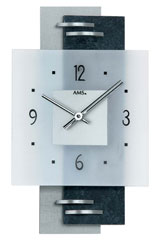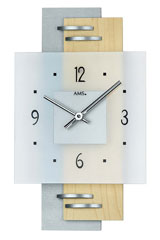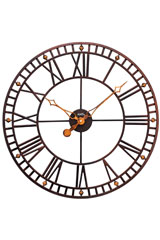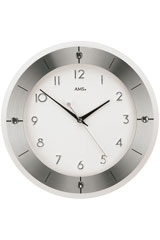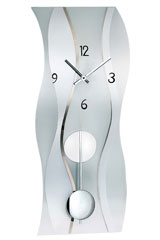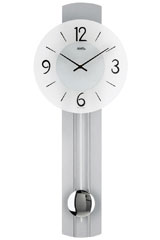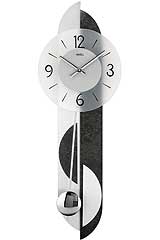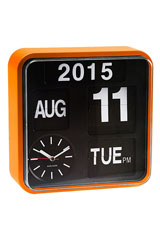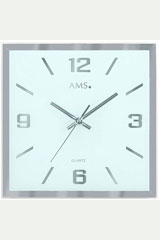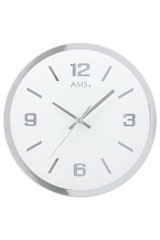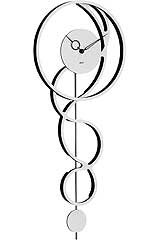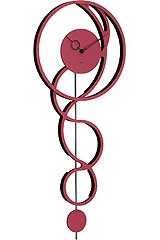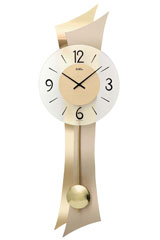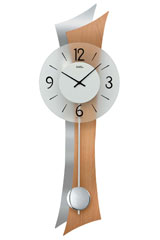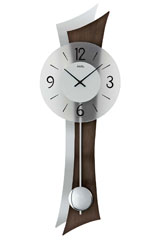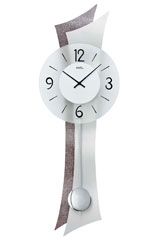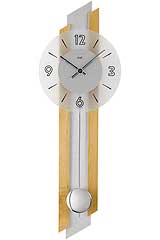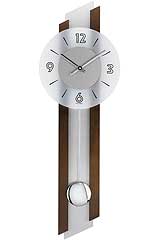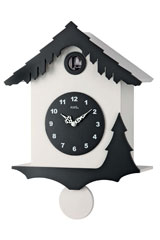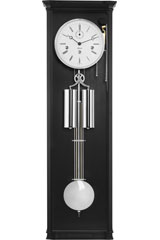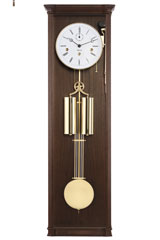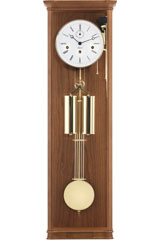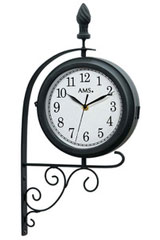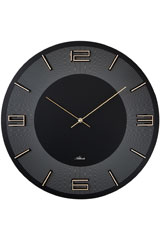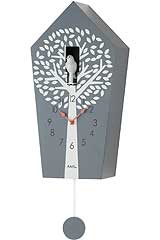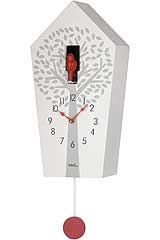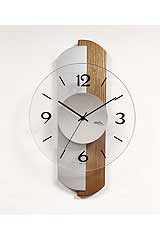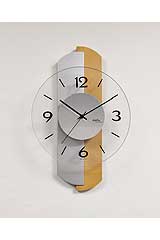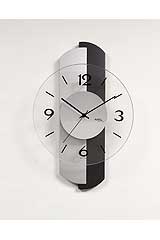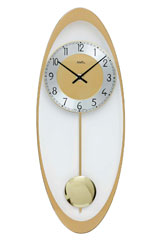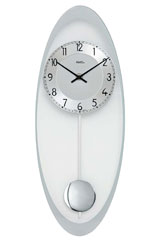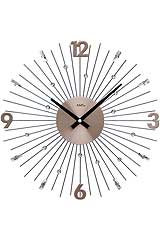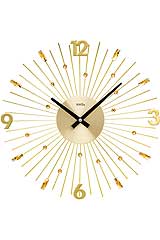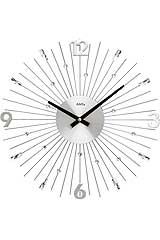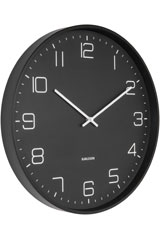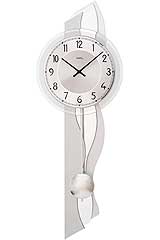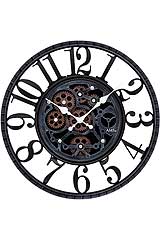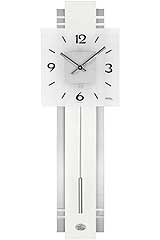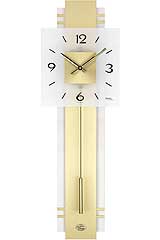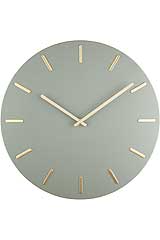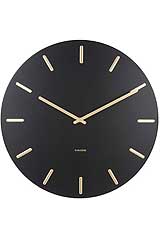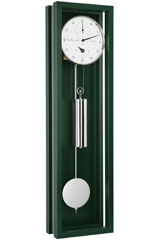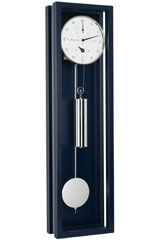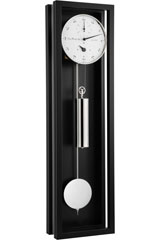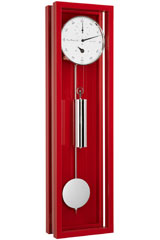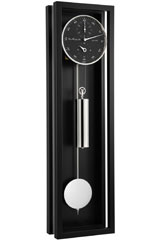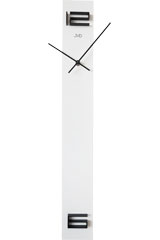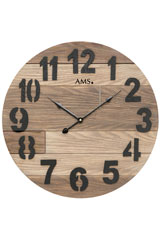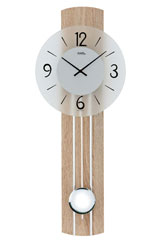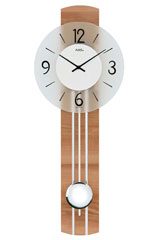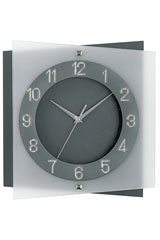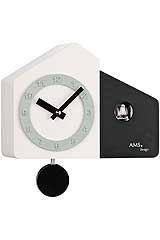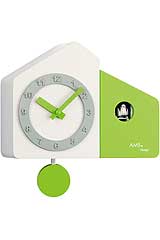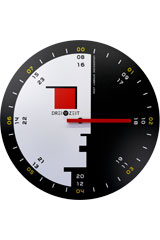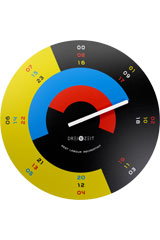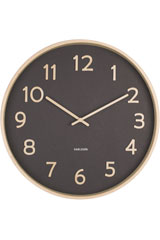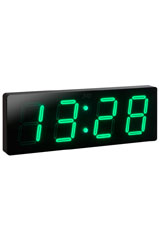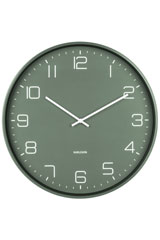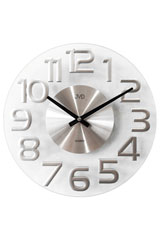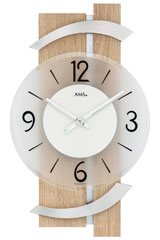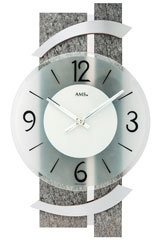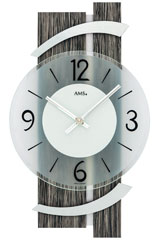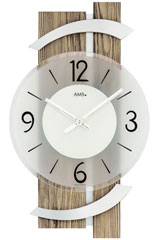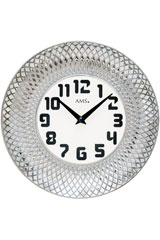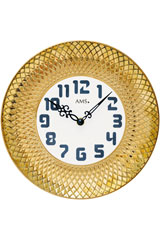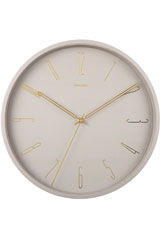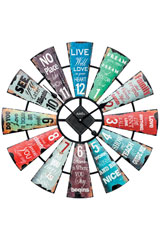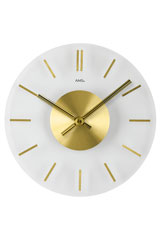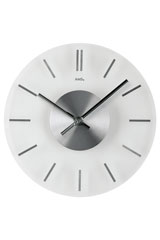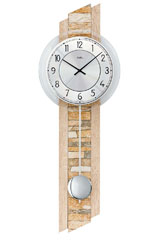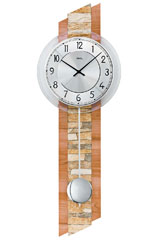Modern wall clocks
Modern wall clocks for every taste
Have you furnished your living spaces in a modern and trendy way? All that's missing is the right wall clock. Let yourself be surprised by our exclusive and trendy modern wall clocks.
Wall clocks modern, stylish and elegant
Modern wall clocks and historical development
The history of the wall clock goes back a long way. In the 14th century, the first mechanical clocks began to appear in churches in Europe. These early timepieces were large and complex, but over time they became smaller and more precise. In the 17th and 18th centuries, pendulum clocks, which were famous for their accuracy, reached their peak.
In the Black Forest, Germany, the production of cuckoo clocks began in the 17th century. These famous clocks were characterized by their unique design, in which a cuckoo call indicates the hours. The Black Forest watchmakers perfected this art and created exquisite wooden watches that became known worldwide.
In the 19th century, industrialization in the Black Forest brought a new era of watchmaking. Mass production made it possible to produce high-quality watches at affordable prices. The watch industry in the Black Forest flourished and became a center of watchmaking.
With the advent of electronic technology in the 20th century, the wall clock continued to develop. Digital and quartz watches became popular and partially replaced traditional mechanical models. Nevertheless, craftsmanship remained alive in the Black Forest, and the region retained its reputation as a center of watchmaking.
Today, the wall clock is an integral part of our living spaces. From antique pendulum clocks to modern digital designs, it offers a variety of styles and features. But the history and tradition of the wall clock in the Black Forest lives on, and the craftsmanship of the clockmakers is still an important part of the local culture and identity.
Mechanical Wall Clocks
Mechanical wall clocks are available today in many modern forms and are still highly valued. They work without batteries and are powered by a spring or weight system that must be wound regularly. The fascinating ticking and the visible movement give them a special charm.
Quartz Wall Clocks
In contrast to this are the quartz wall clocks that entered the scene in the 20th century. They use the vibrations of a quartz crystal, which is set in motion by an electrical voltage, to measure time. Modern quartz wall clocks are extremely precise and require little maintenance, as they only need a new battery occasionally. These modern wall clocks have replaced many mechanical clocks due to their accuracy and convenience.
Modern in technology and style
Modern wall clocks stand for style on the pulse of time and at the same time for technical modernity. Because not only the cases are state-of-the-art. New innovations are also constantly being driven forward with the inner workings, which improve the runtime and reliability of modern wall clocks. Radio-controlled wall clocks are particularly popular here, as they do not have to be adjusted every now and then and also always show the current time precisely. The annoying change between winter and summer time also no longer has to be done manually. Modern wall clocks also have other innovative functions such as thermometers.
Diversity is modern
Modern wall clocks are also visually very versatile. From wall clocks in individual, bright colours to wall clocks with elegant or lively motifs to wall clocks with pendulums and numerous, playful details, everything is available. There is something for everyone here.
Modern design
Wall clocks in a modern design are much more than just wall clocks with extraordinary cases. Like the classic wall clocks, they are timepieces that are made with great attention to detail. Some watches can be quite unusual. An example is the wall clock in the shape of chefs, the Terrastudio brand. What these watches all have in common is that they exude pure joie de vivre.
Modern minimalism
In addition to the eye-catching designs, there is also another trend among modern wall clocks: minimalist models that shine with their restraint. For example, very simple, but clearly oversized watches make a clear style statement without being too obtrusive. These modern designer wall clocks appeal to a rather restrained and elegant audience, which nevertheless rightly relies on modernity.
All important types of modern wall clocks at a glance
Kitchen Clocks
In modern households, there are often special kitchen clocks that offer practical functions such as timers or temperature displays in addition to the time display. These clocks are usually easy to read and adapt to the style of the kitchen.
Radio Controlled Wall Clocks
Radio-controlled wall clocks are contemporary timepieces that are automatically and precisely synchronized by radio signals. The signal, which often comes from Frankfurt am Main, Germany, is broadcast by a transmitter on longwave (DCF77). This signal is received by the clocks and ensures accurate timekeeping.
There are different types of radio-controlled wall clocks. The simplest ones only show hours and minutes, while others can also display seconds, the date and other functions such as temperature or humidity. All clocks also have an automatic time change for summer and winter time.
The wireless technology offers the advantage that the time is always correct without the need for manual adjustments. Thanks to the automatic synchronization with the radio signal, the time remains precise even if the watch has not been used for a long time or the time change changes.
Functional wall clocks, or radio-controlled clocks, are another advance, as they receive the time signal from a radio tower and set automatically.
Office Clocks
In the office, easy-to-read wall clocks are indispensable. Modern office wall clocks are characterized by clear, large dials and a minimalist design that combines both functionality and aesthetics. They help to keep track of the time and at the same time contribute to a professional ambience.
Mechanical Wall Clocks
Mechanical wall clocks are fascinating timepieces that work without batteries. They are powered by a spring or weight system that needs to be wound regularly. A complex system of gears and levers transfers the energy of the spring or weight to the movement, with a pendulum or balance wheel precisely regulating timekeeping. Brands such as Hermle and Kieninger are known for their high-quality mechanical watches that combine traditional craftsmanship and precise engineering. These watches are not only functional, but also elegant works of art.
Pendulum Clocks Wall Clocks
Pendulum clocks are classic timepieces known for their precision and elegance. Its functionality is based on a pendulum that swings evenly and thus regulates time. The length of the pendulum determines the oscillation duration and thus the accuracy of the watch. Special features of pendulum clocks are their soothing ticking and often elaborately designed cases. They require regular winding, making them treasured collector's items. Pendulum clocks from brands such as AMS, Hermle and Kieninger stand for traditional craftsmanship and timeless beauty.
Station Clocks Wall Clocks
Station clocks are iconic timepieces that are known for their reliability and clear readability. They are designed to provide precise and easy-to-read time indications in large, public spaces such as train stations. Typically, they have a simple design with large numerals and clear hands on a white dial. They are often centrally controlled to keep time synchronized. Brands such as Mondaine are famous for their station clocks, which are also popular as stylish design objects in modern living and office spaces. Their precise time indication and timeless aesthetics make them indispensable.
Digital Wall Clocks
Digital wall clocks use modern technology to accurately tell the time. They use digital displays to digitally represent hours, minutes, and sometimes seconds. These clocks are powered by electronic circuits and batteries, which ensures accurate timekeeping. Many digital wall clocks offer additional features such as date display, alarms, and even temperature or humidity measurements. Their clear displays and convenient features make them popular timepieces in homes, offices, and other environments.
Industrial watches
Peweta is a renowned industrial watch brand, known for its durability and precision. The special features of these watches lie in their robust construction and their reliability in extreme conditions. They are often made of high-quality materials such as stainless steel and feature clear, easy-to-read dials with large numbers and hands. Peweta industrial clocks are characterized by their ease of installation and maintenance, which makes them popular timepieces in factories, offices and other industrial environments.
Cuckoo Clocks
Cuckoo clocks are traditional mechanical clocks known for their signature design and charming cuckoo call. The technology of these watches is based on a weight drive and a pendulum mechanism. Once an hour, a mechanical cuckoo bird appears and calls out the current hour. The best-known brands for cuckoo clocks are Anton Schneider and Hönes. These German manufacturers are known for their high-quality handmade watches and traditional design. Cuckoo clocks are not only timepieces, but also popular decorative objects that create a warm atmosphere in living spaces.
Choose your preferred payment
You can choose the following payments from our shop: PayPal, credit card and prepayment. For more information visit payment methods & FAQ More payments: prepayment with 3% off for wristwatches
INFORMATION
Last update 2024-10-22 13:30:04


